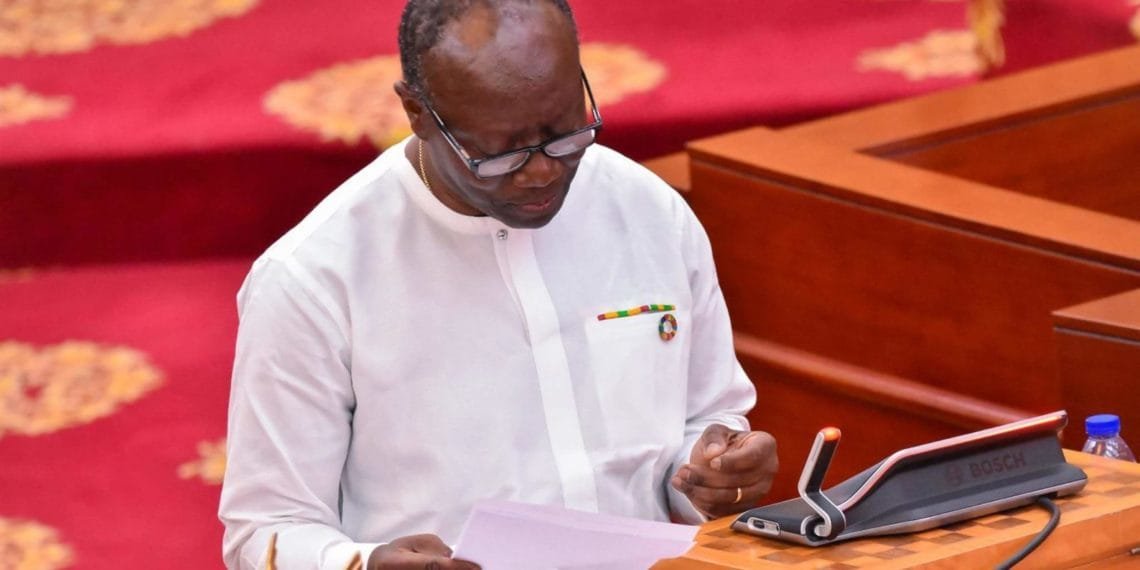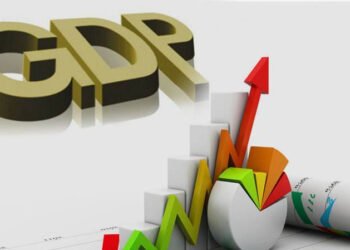The Ministry of Finance has revealed that the banking sector of Ghana held the majority of the country’s domestic debt last year. According to recent information from the ministry, banks held 52.3% of domestic debt as of the end of 2020. The two broad categories of institutions holding the debt include the bank of Ghana and Deposit Money Banks.
Of the 52.3%, the BOG alone held 22.4% of the debt whilst Deposit Money Banks held 29.9% at the end of 2020. Also, the Deposit Money Banks held standard loans that accounted for 0.1 percent of the total domestic debt holdings.
According to the finance ministry, the Bank of Ghana’s holdings increased by 115% in 2020 relative to 2019. However, the ministry attributed it to the 10-year domestic bonds purchased under its Asset Purchasing Program.
Moreover, the Non-bank sector share, comprising individuals and firms & institutions, remained relatively unchanged at 29.0%. This means that the Non-bank sector’s share of the country’s domestic debt ended both 2019 and 2020 at 29.0%.
On the contrary, the share of Non-resident holdings declined to 18.5 percent. That also means that the share of the Foreign Sector holdings of domestic debt dropped by 6.4% in 2020.
Domestic Issuances and Redemptions
Meanwhile, the government issued more securities in the 2020 fiscal year than in 2019. Data from the ministry of finance show that total issuances in 2020 were 48.9% higher than secures issued in 2019. Correspondingly, maturities also increased by 34.6% for the same period.
“Total domestic securities issued in 2020 was GH₵94.64 billion against maturities of GH₵62.86 billion. This gives a net issuance of GH₵31.78 billion”.
The ministry further explained that there were new issuances and reopening of some medium-term securities for the period under review. These were notably the 5-year, 15-year and 20-year bonds.
Domestic Rates
On the whole, domestic rates fell inched down in 2020. This however excluded inflation which increased by 2.0% compared to the 2019 rate of 7.9%. The policy rate fell from 16% in 2019 to 14.5% in 2020. Similarly, the 91-day treasury bill and the 5-year bond recorded marginal declines of 0.61% and 0.25% respectively.
Accordingly, the real interest rates on government securities declined sharply from 6.80% in 2019 to 4.19% in 2020. The weighted average interbank interest rates also fell by 1.8% and 5.64% compared to 2019 and 2017 respectively.
The finance ministry pointed out that the shorter end of the yield curve shifted downwards in 2020. The ministry explained that this reflects the decline in interest rates for the period. There is, however, a kink in the longer end of the curve. As such, the finance ministry called for the need to realign the rates to achieve a normal yield curve.
Also, the finance ministry gave an update on the government’s On-lending Operations for the period under review. The ministry revealed that the government received a total of GH₵28.26 million under its on-lending operations. This was a debt service payment from Volta River Authority (VRA) for on-lent facilities falling due.
Overview of domestic debt
Meanwhile, the stock of domestic debt as of End-December 2020 stood at GH₵149.83 billion. This represents 39.1% of GDP and an increase of 42% from the 2019 position. However, excluding the financial sector bailout, the domestic debt was GH₵133.54 billion. The ministry of finance attributed the increase in the domestic debt portfolio to the GH₵10 billion COVID-19 bonds issued.
Meanwhile, the proportion of medium-term debt remained dominant in the domestic debt portfolio. The ministry noted that medium-term debt accounted for 60.3 percent of the domestic debt portfolio in 2020. This is higher than the 56.4% recorded in 2019.
The ministry explained that this was as a result of the financial sector bailout bonds which were restructured into 3-year and 5-year bonds. The share of the short-term instruments, however, declined by 4.2% to 11.3% by the end of 2020. The long-term and standard loans recorded a percentage share of 28.3 and 0.1 respectively.
READ ALSO: Minority Owes An Explanation For Unanimous Approval Of Finance Minister























